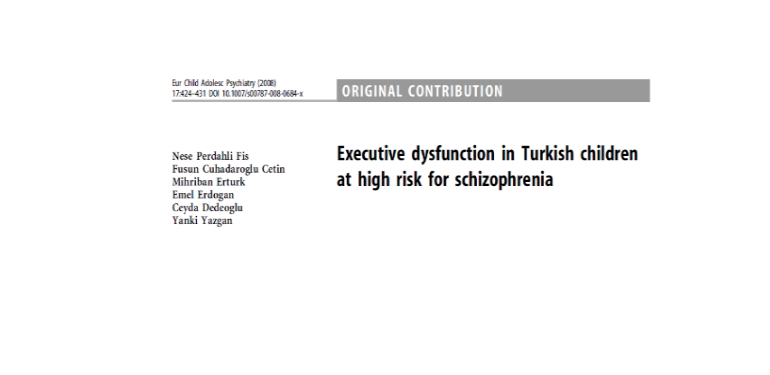Abstract
Objective To explore different aspects of executive function (i.e. sequencing, set shifting and mental flexibility) in children who are at high risk for schizophrenia by comparing them with normal controls.
Method The high risk (HR) group consisted of 30 children whose parents were diagnosed as schizophrenia. As the control group (CG) 30 children, whose parents did not meet any DSM IV diagnostic criteria for any psychiatric disorder, participated. They were age and sex matched with the HR group. For the evaluation of different domains of cognitive functions Wechsler intelligence scale for children-revised (WISC-R), and a group of neuropsychological tests, including TrailMaking A-B Tests, Color Form Test, and Progressive Figures Test were administered. Behavioral problems were assessed using Hacettepe Adjustment Scale.
Results The subjects in the high risk group had significantly lower scores on Trail Making A-B, Color Form, Progressive Figures Tests, as well as subtests and scores of WISC-R (Information, Comprehension, Similarities, Picture Completion, Block Design, Object Assembly and Coding subtests, Verbal, Performance and Full Scale IQ scores). There is no significant difference between the two groups in the frequency and severity of behavioral problems.
Conclusion Children of parents with schizophrenia displayed significantly greater number of difficulties in several areas of executive function, such as sequencing, set shifting, and mental flexibility,when compared to their controls.
Key words: executive function– high-risk children –schizophrenia

